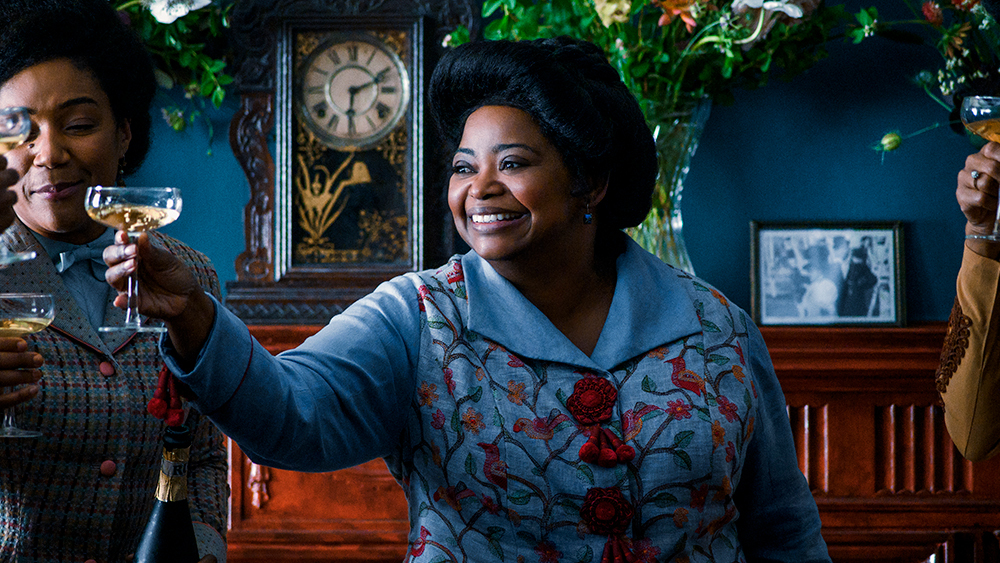
Series Review: Self Made
Film Reviews
Self Made: Inspired by the Life of Madam C. J. Walker
Directors: Kasi Lemmons, DeMane Davis
SpringHill Entertainment
Streaming on Netflix: 03.20
Sarah Breedlove was the wealthiest self-made woman in America at the time of her death in 1919 and the first African-American female millionaire. She was also an activist and philanthropist. Netflix’ new four-part limited series, Self Made: Inspired by the Life of Madam C. J. Walker, is in many ways a formulaic but effective biopic, but it’s also a fascinating treatise on a very topical subject: black hair. From the Penn State controversy surrounding Jonathan Sutherland’s locks to the CROWN Act, this is a subject that has been prominent in the news for a while now. But it’s hardly a new issue, and this series explores the impact that notions about black women’s hair have had on their lives for centuries.
Sarah (Oscar Winner Octavia Spencer) came from humble beginnings and a difficult life, but she went from selling hair restoration and care products door-to-door to creating an empire that would revolutionize black hair care. She did so under the name Madam C. J. Walker in reference to her husband, Charles Joseph Walker (Blair Underwood). Based on the writings of Sarah’s great-great-grandaughter, A’Lelia Bundle, Self Made is a moving rags-to-riches story about a visionary woman who would not be kept down. But some of the most interesting moments of the film are those that explore the role of hair in the politics of race, not just between black and white people, but specifically the divide between women who looked African and those who were of mixed heritage, possessing a look that made them much more acceptable and desirable to some but derided and utterly unacceptable to others.
Spencer is a first rate actress who doesn’t get nearly enough chances to play the lead, and she makes every moment count here in what is sure to be an Emmy-nominated performance. She easily carries the story with her tenacity, dignity and raw power. But Underwood is at the top of his game as her husband, and Tiffany Haddish gets to show a whole new side of herself as Leila, the daughter whom Sarah bore when she was practically a child herself. Carmen Ejogo is given by far the most problematic character, a highly fictionalized version of Sarah’s chief competitor. The story of their rivalry occasionally descends into silly melodrama, but Ejogo manages to inject some humanity into the role, and their final scene together makes it all work well enough. But for me, the presence of original Saturday Night Live cast member Garrett Morris as Sarah’s father-in-law, Cleophus Walker, was the most serendipitous piece of casting. Morris was a bold pioneer as both an actor and a writer in his brilliant and groundbreaking sketches on racial politics on SNL, and his presence here adds a delightful level of irony that I suspect is entirely intentional.
Director Kasi Lemons (Harriet) gives the first two episodes a good deal of style, employing fantastical framing devices reminiscent of Chicago. DeMane Davis is more straightforward with the second half of the story, but she shoulders much of the most intense human drama with no small amount of skill.
If you’re looking for a compelling and worthwhile way to spend four hours (and who isn’t right now?), Self Made will entertain you and tug at your heart while giving you something to think about as well. It’s a very fine piece of television drama that is very worthy of your time. –Patrick Gibbs